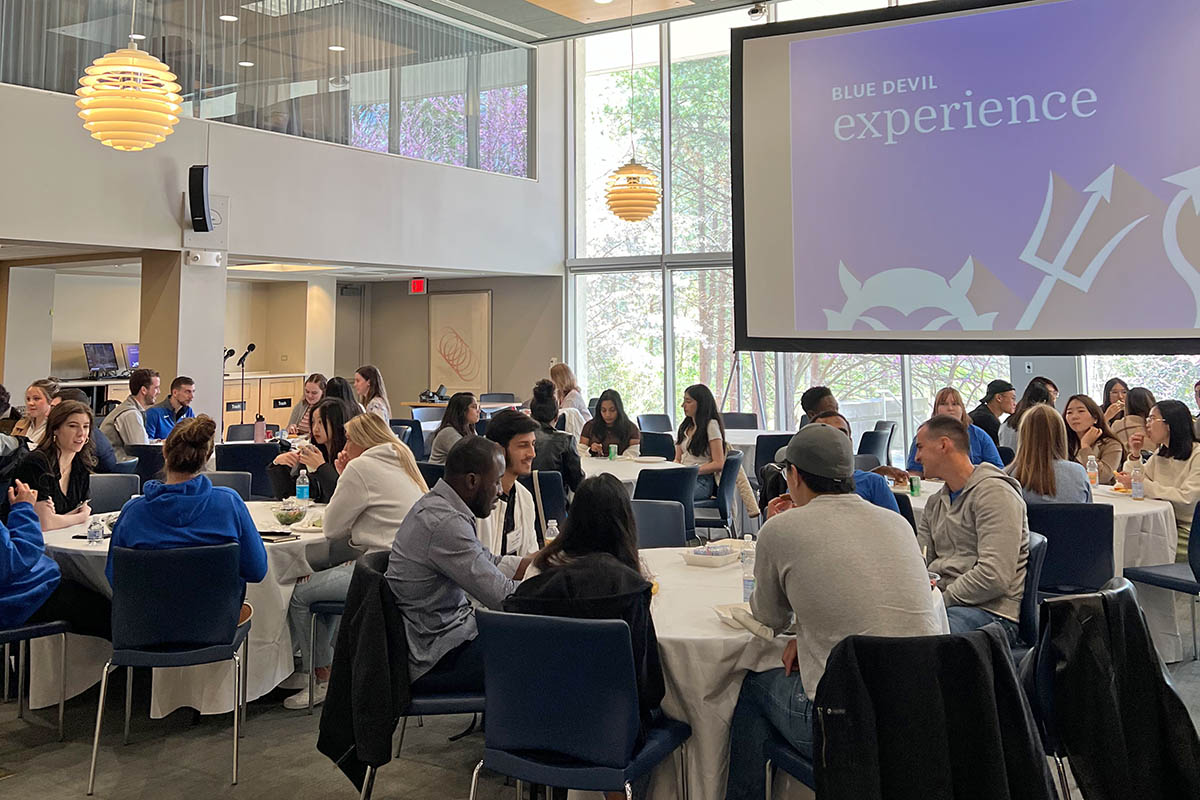Duke MQM Student Blog

Admissions Advice from a Student Ambassador
Here are some common topics that I've been asked about during my time as an admissions ambassador.

As I think about this time last year, I remember the immense pressure owing to several application deadlines, essays, statements of purpose, letters of recommendation, information connections, and admissions events for master’s in business analytics programs. It seemed impossible at the time to keep up with everything, but I’m here now so perhaps I did something correctly.
Now, as an admissions ambassador for the program, I want to reach as many prospective students as possible and help inform their application and admission journeys. Here are some common topics that I’ve been asked about during my time in that role.
How to Make Your Profile Stand Out
The first level of this is, of course, a long-term piece with optimizing your school selection basis profile and aspiration, your test scores, talking to alumni and current students, etc.
The piece that is different at Fuqua, however, is the “25 Random Things” application essay. This unique essay/listicle is prime real estate, and I used it to talk about life-shaping events, my passions, hobbies, strengths, and shortcomings. From the examples in these blogs, one can also gather that this list can be wide-ranging and very personal, so don’t worry about getting it right or wrong. It is more about understanding yourself, and demonstrating you know yourself the best. Essentially, along with the scores and academic readiness, make sure to spend enough time with this essay.
Why Did You Choose Fuqua?
This is personal and based on my anecdotal experience, but I was fortunate to get admitted to my top three preferred schools, which made a choice hard.
I chose Fuqua owing to the approximate 60-40 split between core business courses (including those in the Finance track, in my case) and data analysis/science courses, the business school reputation, the ability to pursue activities outside the school curriculum, and most importantly, the Team Fuqua spirit.
The alumni, admissions ambassadors, and the Admissions team were always present and eager to help me with even the most simple questions. This support, indicating the real presence of a Team Fuqua community spirit, ultimately made me choose Duke, and I’m happy to report that that seems to be the right decision.
Should I apply in Round 1 versus Round 2?
This is a popular question I’ve been receiving from prospective students I have spoken with. From my anecdotal experience, this doesn’t make that much of a difference, unlike what I initially thought. Typically, Round 2 deadlines are around the end of the calendar year, coinciding with the holiday season, and are the largest application rounds, specifically for international students.
I chose to apply in Round 1 to most of my shortlisted programs, as I felt applying early was the way to go. But if you can get admitted during Round 1 at Fuqua, you would likely get admitted in Round 2 and vice versa. Rather, your decision metric should be the quality of your application (the essays, the scores, and your profile). These should determine your personal timeline, but keep in mind that international students would also need time to work through the visa processes. Here are some tips on how to demonstrate academic readiness in your application and a complete list of the application rounds and deadlines.
Program Ranking Versus Program Structure
The first places I looked at when I started applying for programs were the QS and U.S. News rankings. While the rankings help identify target programs, school selection should be coherent with goals, aspirations, and intended outcomes.
My criteria for selection were a program that focuses on data analytics (tools, techniques, and courses), gives a good understanding of data science, and allows me to study finance formally. This helped me narrow down my options. Upon further research, I fell in love with what Duke and Fuqua offered. As I discussed above, the balance between data and finance courses, an experiential capstone project at the end of the course to practically test new skills, and finally, the Team Fuqua spirit, all led me here.



